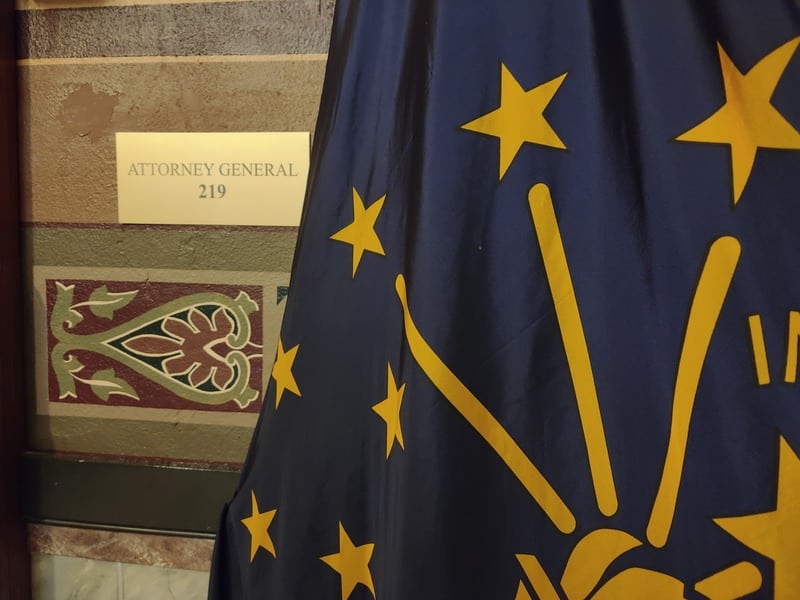The law.
The truth.
Or the intelligence of the people who put him in that office.
Indiana’s high court opted to give the state’s lawyer a slap on the wrist for violating rules of professional conduct. Three Supreme Court justices—Derek Molter, Mark Massa and Geoffrey Slaughter—concurred in accepting a conditional agreement negotiated by Rokita and the Indiana Supreme Court Attorney Disciplinary Commission.
Two justices—Chief Justice Loretta Rush and Justice Christopher Goff—dissented because they thought the penalty was not severe enough.
Rush and Goff were right.
The penalty isn’t enough.
The concurring—actually, in this case, “enabling” might be a better word choice—justices decided that Rokita merited the reprimand because of a statement he made during his costly and inexcusable campaign to malign Dr. Caitlin Bernard. Because the doctor had agreed to perform a legal abortion for a 10-year-old Ohio girl who had been raped, the attorney general went on national television to accuse Bernard of violating both the law and her professional responsibilities.
None of what Rokita said during that TV appearance was true.
The enabling justices decided, in fact, that the attorney general’s statement had no purpose “other than to embarrass or burden the physician.”
In the affidavit that was part of the agreement, Rokita—under penalty of perjury—admitted he had done so.
Immediately following the public announcement of the reprimand, Rokita said he had done no such thing. He claimed he agreed to the reprimand just to save Hoosier taxpayers money.
There are several problems here.
The first and most obvious is that Rokita admitted, under penalty of perjury, that he had done harm to Bernard. Then, in his public statement, he said the opposite.
This raises an important question: Was Rokita shading the truth in his affidavit for the enabling justices or was he doing so in his public statement?
Either way, in one instance, he was less than a model of veracity and accountability.
(A note to the enabling justices: If you hoped that reprimanding Rokita would encourage him to mend his ways, your hope appears to have been misplaced.)
Then there’s the other big piece of Rokita’s statement—the part where he says he only agreed to the reprimand to save Hoosier taxpayers money.
Rokita spent hundreds of thousands of tax dollars pursuing Bernard. He hired an expensive Washington, D.C. boutique conservative law firm to help him with his persecution of the doctor. He switched arenas—from the courts to the medical ethics process—at a cost to the taxpayers in his pursuit of her.
Yet, he wants his supporters to believe he suddenly decided to monitor the amount of taxpayer-funded gas he was burning when it was his own flapjacks that were on the griddle?
He wants everyone to swallow the whopper that accepting the reprimand was a selfless act rather than a desperate grasp for the best deal he could get?
Wow.
Just how dumb does he think the people who voted for him are?
Pretty dumb, apparently.
Todd Rokita is who he always has been—a slick political hustler long on ambition with an unquenchable desperation for public attention and short on any notion of personal responsibility.
He says now that his reprimand is the work of “liberal activists.”
This ignores a couple of important facts.
The first is that every justice on the Indiana Supreme Court was put forward by a Republican governor. The second is that Loretta Rush, the chief justice who wanted to drop a heavier hammer on him, is an admirer and devotee of the late Antonin Scalia, possibly the most conservative U.S. Supreme Court justice in American history.
Doubtless, the three enabling justices thought—or at least hoped—that their reprimand would end this whole sorry, embarrassing episode in Indiana history.
They’re wrong about that.
The message Todd Rokita will take from this is that he can abuse his office and immense authority to conduct a private vendetta at taxpayer expense against a private citizen whose only offense was contradicting and embarrassing him.
And the worst that will happen to him is that he gets a slap on the wrist.
He’ll be emboldened, not chastened.
The dissenting justices were right on this one.
Their colleagues should have listened to them.










